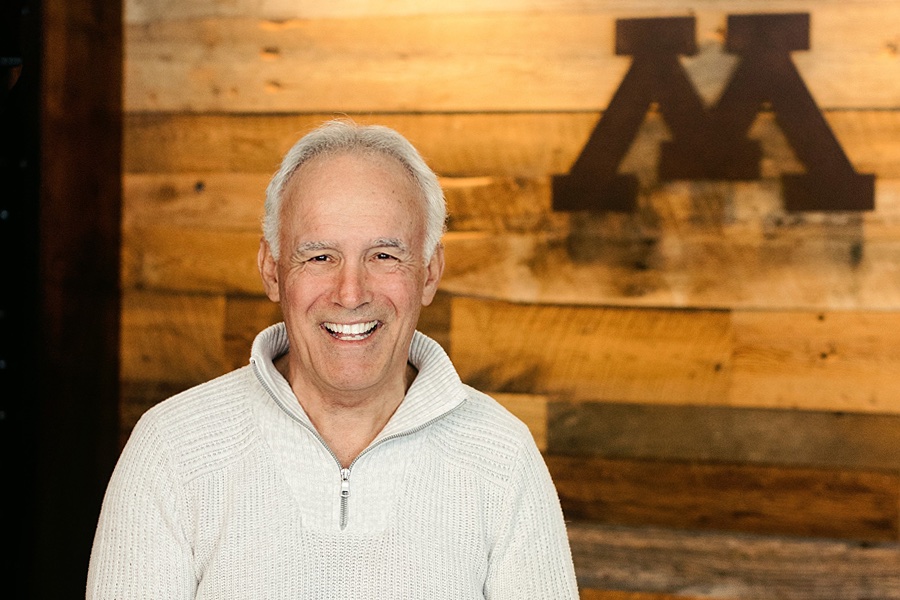
When you learn you have cancer, not much can top the shock. Except maybe learning that its survival rate is two percent.
That double whammy struck Scott Nelson in 2004, when an ultrasound scan picked up a large tumor on his pancreas. His only chance of survival lay in getting it to shrink enough to be surgically removed.
After his diagnosis in Hudson, Wisconsin, Nelson found his way to M Health Fairview hematologist and oncologist Edward Greeno, who is now medical director of the M Health Fairview Masonic Cancer Clinic. Greeno was spearheading a clinical trial of an intensive chemotherapy regimen to shrink the tumor.
And it did. In just a few months Nelson’s cancer, which was due to the notorious BRCA2 cancer gene, shrank enough to be removed. He benefited from a then-unknown link between BRCA2-caused cancers and a chemotherapy drug that was particularly effective against such tumors and happened to be part of the clinical trial.
His experience prompted his seven siblings, five of whom are confirmed to have the BRCA2 mutation, to get genetic testing and regular screenings. So far, eight family members with the mutation have had early cancers stopped in their tracks.
The rematch
This year (2023) Nelson is taking part in a clinical trial that tests the ability of drugs called PARP inhibitors to shrink prostate cancers.
“We have very good evidence from other clinical trials that PARP inhibitors work extremely well in patients that have BRCA2 mutations,” says M Health Fairview oncologist and trial leader Emmanuel Antonarakis. “Had Scott not had the BRCA2 mutation, there literally would have been no other [presurgery] options for him.
“So in a paradoxical way, the BRCA2 mutation, which on the one hand may have caused his prostate cancer, was also his saving grace.”
In March Nelson’s prostate tumor had shrunk enough to be successfully removed.
- Categories:
- Health
- Health conditions
- Medical
- Science




